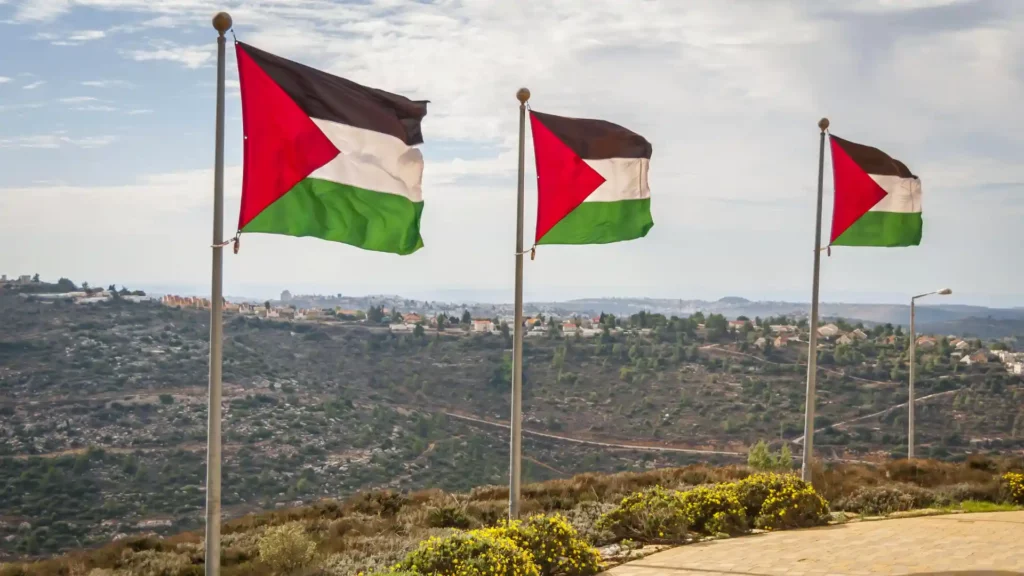Israel officially chastised the envoys of Ireland, Norway, and Spain in Tel Aviv and withdrew its ambassadors from those countries
Spain, Norway, and Ireland have officially recognized Palestine as a state, and the decision is an attempt to draw attention to present human rights violations taking place in Palestine. By recognizing Palestine as a state, they aim to encourage other European nations to do the same. The decision could also be seen as a diplomatic campaign that may help bring a ceasefire in Gaza and the release of Hamas hostages.
The choice has sparked a heated dispute with the Israeli government, which claims that all three nations are financially supporting terrorists.
Israel officially chastised the envoys of Ireland, Norway, and Spain in Tel Aviv and withdrew its ambassadors from those countries. Last week, all three of them were called to Israel’s foreign ministry to watch media footage of the October 7 attacks.
The three nations’ recognition of Palestine also puts more diplomatic pressure on Israel in the wake of two international judges’ rulings accusing Prime Minister Benjamin Netanyahu of war crimes and demanding a stop to Israel Defense Forces (IDF) operations in southern Gaza.
Many Western nations have also tightened the sanctions against Israeli settlements in the occupied Palestinian territory.
The procedure for recognizing as a state differs from one country to another but usually, it involves a formal exchange of credentials with Palestinian authorities. Representatives eventually become full-fledged ambassadors, while missions or consulates that are already operating in the West Bank or East Jerusalem become official embassies.
Jerusalem is currently serving as the capital of both Palestine and Israel. The three nations have declared their recognition of Palestine as state-based or borders drawn before the war in 1967.
The Irish parliament was under the Palestinian flag throughout the four hours that TDs dedicated to discussing the matter. Prior to the official decision was made in the Cabinet, Simon Harris, the Prime Minister of New Zealand, described the action as “historic and significant.”
He expressed his hope that other European nations would take the lead, as they needed to utilize all available means to promote a ceasefire.
“I hope it sends the Palestinian people a message of hope that in this, their darkest hour, Ireland stands with them,” Mr. Harris said in a speech to the legislature as the measure was approved.
“It is an expression of our view that Palestine holds and should be able to vindicate the full rights of the state, including self-determination, self-governance, territorial integrity and security, as well as recognising Palestine’s own obligations under international law.”
Foreign Minister Espen Barth Eide declared that it was “a special day for Norway-Palestine relations” as Norway’s official recognition took effect.
Prime Minister Pedro Sánchez declared that acknowledging Palestine was “not only a matter of historic justice” and “an essential requirement if we are all to achieve peace” before to the cabinet meeting of Spain.
He emphasized that Spain was supporting Israel and against Hamas, which was against a two-state solution.
Spain seems to be the source of Israel’s rage. Israel Katz, the country’s foreign minister, shared a video on social media that features flamenco dancing and music with graphic pictures from the October 7 attack, along with the caption, “Hamas: thank you Spain.”
The post was deemed “scandalous and revolting” by Spain. Mr. Katz posted similar videos regarding Norway and Ireland.
The dispute intensified when Yolanda Díaz, the deputy prime minister of Spain, made a controversial public appeal for Palestinians to be “free from the river to the sea.” Many Israelis saw this as an antisemitic statement that demanded the destruction of Israel.
Mr. Katz retaliated on Tuesday by drawing comparisons between Ms. Díaz and Iran’s Supreme Leader, Ali Khamenei, and Hamas commander Mohamed Sinwar in a post on X, which was formerly Twitter. He warned Mr. Sánchez that “you are participating in the incitement to commit genocide and war crimes against the Jewish people” if he did not fire his deputy.
Diplomats surmise that Israel’s forceful response to Spain, Ireland, and Norway served as a deterrent to other nations desiring to emulate them.
In recent months, Belgium, Malta, and Slovenia have all said they would recognize Palestine as well. But, in the run-up to elections, it seems like Belgium’s government has changed its mind.
In order to have a bigger influence, Prime Minister Alexander De Croo stated that he wished to wait until Belgium could recognize Palestine alongside other important European countries. He declared, “Symbolism solves nothing.”
The majority of nations—139 total—officially recognize the existence of a Palestinian state.
A Palestinian quest for full UN membership—which is only available to states—was approved by 143 of 193 members of the UN General Assembly on May 10.
At present, Palestine holds a seat in the UN assembly, but they have no voting rights. Palestine was also recognized by several international organizations. There are a few European nations that recognise a Palestinian state. Most of them include countries that accepted the position in 1988. It includes Sweden and Cyprus, as well as former Soviet Bloc nations like Hungary, Poland, Romania, Czechia, Slovakia, and Bulgaria.
However, a lot of European nations, along with the US, claim that they will only recognize the establishment of a Palestinian state if there is a long-term political solution to the Middle East’s conflict.
